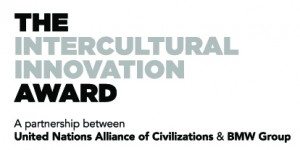I am 21, and what have I achieved?
That was the burning question I found myself asking when I met Monique Evelle, founder and leader of Desabafo Social. The headquarters reflects the organisation’s commitment to youth, from the quasi-graffiti on the walls, to the group of young Afro-Brazilian women and girls that give us our briefing. The organisation, founded in 2011 when Monique was in high school, works across thirteen states to socially empower young Brazilians, particularly those of African descent, through creating safe spaces to gather, collaborate on and develop projects in their own communities to counter racism and inequality. Even in Australia, fighting both the overt and the subtle influence of race seems a mammoth task, one that many in the community are not ready or willing to confront. Nonetheless, open and shameless racism regularly stimulates public discourse against the perpetrators, as with Adam Goodes and more insidiously, with racial abuse on public transport. There is a sense of shame attached, in the mind of the majority, to blatant racism.
In Brazil, the social divides are infinite, complex, dynamic and extreme: the slightest changes in skin tone dictate which workplaces will hire you or not hire you for the position you are qualified for. If you happen to be ‘black’ or ‘coloured’ and highly qualified, while a less qualified applicant is ‘white’ then guess who will get the call back? LGBTIQ Brazilians, the poor, those who live in favelas (unplanned communities), women and people of colour will invariably face significant social challenges that simply don’t exist for others. In police organisations, there exist significant prejudices even between those of different shades of colour. We see this as racial profiling, but to authorities, it is simply preventative. In August, a bus ferrying fifteen teenagers from the city’s outer communities (read: of low socio-economic status) was stopped in the streets of Rio by the notorious military police, with those on board summarily detained and searched. None were carrying weapons or drugs. Fourteen of the fifteen were black.
Now imagine you ran an anti-racism organisation, like All Together Now. Imagine each day, you ran the risk of being detained arbitrarily outside your office, and routinely passed by young, black men being searched in the street solely for the colour of their skin. Imagine that you yourself are regularly stopped on your doorstep, or violently assailed in the street with little reason, outside your workplace that exists solely to counter this behaviour. The need for such an organisation is self-evident in Salvador, within metres of its headquarters: en route, two young men with backpacks, dressed much like myself and seemingly hanging out together in the city centre of the old city, are stopped in the street. Their hands behind their heads, legs spread, three heavily armed policemen that are at pains to emphasize their weapons assail them. Nothing is found on their person. Guess their skin colour.
That is Desabafo Social’s reality. For a society so entrenched in its own problems – economic, political and social – it appears to be a demoralising battle for survival in Brazil, but unless people who want to change this system can band together, it is bound by the lessons of history to repeat. Ignorance will breed ignorance, poverty breeds poverty. Human rights form the overarching narrative of what Desabafo aims to do: to promote an alternative vision of human rights to young people, and enshrine equality and fairness in a society so long bereft of them. Monique wants to interrupt this cycle, and in small ways, Desabafo Social is winning, and collecting accolades along the way.
Much of this success is owed to the organisation’s use of technology. Monique has been recognised in Brazil as one of 25 most influential Afro-Brazilians on the internet. The internet empowers all users to collaborate, communicate and develop new ideas in a relatively safe space. Aprendizagem colaborativa, in English “collaborative knowledge,” is built collectively between peers and teachers and facilitated by the internet. Via this platform, the organisation frequently organises workshops, seminars and lectures on social entrepreneurship, effecting change, self-development and community organisation. Youth participation is paramount, and it is through investing time and energy into education that Desabafo aims to change endemic disadvantage.
Everything is about developing change in the long term, and investing in what we have now to reap change later. Social changes require patience; take Indigenous rights or same-sex marriage in this country. Children teach their children their values, after all. It’s a lesson many in Australia could learn.



